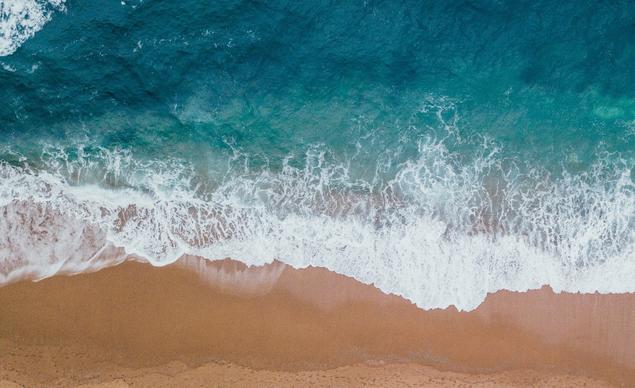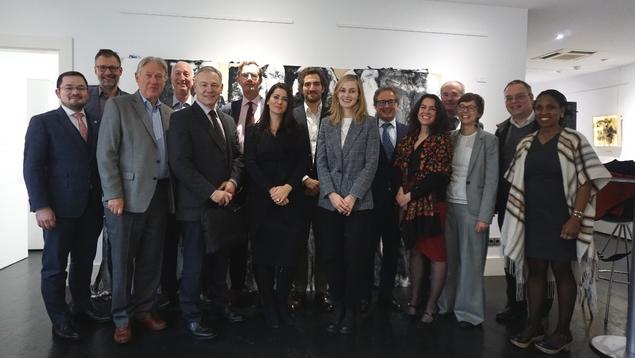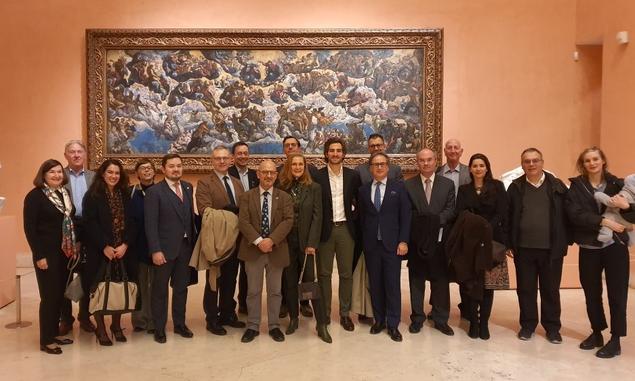Sea-level rise and international law

With sea-level rise comes a tide of challenges – some of which are legal, and indeed moral, in nature. How can human society tackle the threats facing small islands and low-lying states? What of the people and populations who risk losing their country to the waves?
These questions, and more, are at the core of the work of the Committee on International Law and Sea Level Rise of the International Law Association (ILA), which held its annual meeting in Madrid on 10 December 2019, in conjunction with the climate summit, COP 25. The Committee is chaired by FNI Research Professor Davor Vidas; the meeting was co-organized by FNI and the Autonomous University of Madrid.
Extended mandate
 Following the first phase of the Committee’s work, completed with the comprehensive report and two resolutions adopted at the 78th Biennial Conference of the ILA, held in Sydney, Australia, in 2018, the ILA Executive Council extended the mandate of the Committee through 2022, to enable it to address several fundamental aspects of international law in face of scientific predictions concerning sea-level rise in the coming decades.
Following the first phase of the Committee’s work, completed with the comprehensive report and two resolutions adopted at the 78th Biennial Conference of the ILA, held in Sydney, Australia, in 2018, the ILA Executive Council extended the mandate of the Committee through 2022, to enable it to address several fundamental aspects of international law in face of scientific predictions concerning sea-level rise in the coming decades.
The work of the Committee in this phase comprises – in addition to the issues related to the law of the sea and territory, and to the rights of the affected population – also the study of the statehood and international law personality questions, and other related issues of international law and international security.
Changing state territory
Established by the ILA in November 2012, the Committee has a two-part mandate: to ‘study the possible impacts of sea-level rise and the implications under international law of the partial and complete inundation of state territory, or depopulation thereof, in particular of small island and low-lying states’; and to ‘develop proposals for the progressive development of international law in relation to the possible loss of all or of parts of state territory and maritime zones due to sea-level rise, including the impacts on statehood, nationality, and human rights’. These issues have attracted the current membership of some 45 prominent international lawyers from over 20 national and regional ILA branches who take part in the work of the Committee.

The future of statehood
The Committee has divided its work thematically into two main stages. In the first phase (until 2018) it focused on priority areas in a relatively short-term perspective, with two parallel streams of study: one on law of the sea issues, the other on migration and human rights issues. In the second phase of its work (2019–2022), where the Madrid meeting marked an important milestone, the Committee focuses on the study of international law issues prompted by mid- and longer-term scientific predictions of sea-level rise.
In this second phase, we are looking at some of the most fundamental questions of international law posed by sea-level rise, such as statehood and, more broadly, international legal personality issues – especially for several low-lying small island states, some of which are also among the least developed countries’, says FNI Research Professor Davor Vidas, Chair of the Committee since its establishment.
‘Also archipelagic countries and other low-lying coastal states, especially the least developed ones among them, will be severely affected – and all this requires very careful study by the Committee, in which innovative proposals concerning international law must be examined in light of the complex and unprecedented challenges arising, on the one hand, and the current structure of international law, on the other’, Vidas explains.
Discussions in the UN
After having met in Madrid on 10 December for its annual session, the Committee presented its work at a public breakfast meeting co-organized by the FNI and the Autonomous University of Madrid at Fundación Fide (Foundation for Research in Law and Business) on 11 December.
Members of the ILA Committee were also hosted upon invitation of Francesca Thyssen-Bornemisza at the National Museum Thyssen-Bornemisza. They attended the opening of the ‘Western Flag’ round-table event at the Museum on 10 December, held in connection with the art installation by Irish artist John Gerrard exhibited on the occasion of COP 25 in Madrid.

International law issues related to scientific predictions of sea-level rise are increasingly attracting global attention, as reflected in discussions at the UN General Assembly – most recently at its Sixth Committee in October 2019, to which Norway also contributed. Earlier in 2019, at its session in May, the UN International Law Commission decided to include the topic of ‘Sea-level in relation to international law’ in its programme of work, establishing an open-ended Study Group to address this matter within the scope of the ILC mandate.
About the ILA: The International Law Association (ILA) was founded in Brussels in 1873. It is a scholarly association of international lawyers: its membership, at present about 4500, is spread among over 60 national branches throughout the world. The objectives of the ILA are ‘the study, clarification and development of international law’. There are currently 23 ILA international committees and 10 study groups, focusing on various aspects of private and public international law. The ILA has consultative status with several UN specialized agencies.
